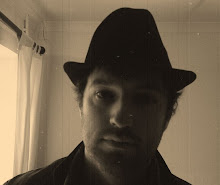
When it was revealed that HBO were to begin producing a new period gangster drama, written by some of the people behind the Sopranos, starring Steve Buscemi and with the first episode directed by Martin Scorsese, TV critics across the globe had a collective orgasm. Once the series had aired, they were no less gushing in their praise.
Yet Boardwalk Empire is not quite the home run that all have called it. That’s not to say that’s it isn’t a great series – it is, but it does have its flaws. It would be truer to say that it becomes a great series, its beginning are a little... crowded.
Boardwalk Empire is the story of prohibition era America. Steve Buscemi is Nucky Thompson, the New Jersey county treasurer and, essentially, the city’s mob boss. The man who pulls the strings in the street and in the halls of power. When the ban on alcohol comes in, he quite jovially announces to his cohorts, including the major and the sheriff (his brother) that they’re going to make a fortune. New business brings new enemies, however, and his unwillingness to bend to the will of a New York gangster causes trouble, as does a zealous prohibition agent. But Nucky prefers politics to the violence of mob business, which gradually begins to undermine his position.
Sopranos comparisons are easy, and not just because of the writers. And the New Jersey location. There’s the young mobster who threatens the boss’ authority, the old gangster who jealous of his success, the powerful New York crowd trying to muscle in, and the women he loves, who struggles to reconcile her love for the boss with the criminal life he leads.
But then again, Tony Soprano was not involved in politics, and was not a subtle character. Steve Buscemi plays a character who holds his card much closer to his chest, and all times appears respectable. He’s a harder character to get an angle on. He has no psychiatrist to spill his inner thoughts to.
This is nub of the problem. Boardwalk Empire plunges head first into the action, before we ever get to know our characters. They’re all immersed in sub-plots. Plot driven action is always welcome, but most series let you get to know the territory first. One of the story techniques adhered to throughout the Sopranos run was that each episode should stand alone, and could be watched as an individual story. After the pilot, it’s quite a few episodes in before there’s anything resembling an A story begun and resolved in one episode.
All these ongoing plots leave character

development in the dark and loose ends dangling from one episode to the next. There’s one sub-plot, featuring a dumb gangster out of favour, with debtors on his back, that inspires hardly any interest at all. Eventually it comes in to contact with another sub-plot, and starts to add to something more, but only eventually.
So why all the praise then? Well it’s HBO, and as such it has all the resources the HBO can throw at it. The production values are superb, and the cast, you really couldn’t ask for a butter bench of actors.
Though the crowded plot causes issues, the writing is otherwise excellent. The show is packed with interesting and colourful characters, from the savvy boss of the negro mob to the gangster’s moll who’s true love is another women. By far the most fascinating, and disturbing, is FBI Agent Van Alden, a Christian zealot with a fiery temper, who struggles to suppress his rage at the abundant moral corruption that surrounds him. And is also gradually corrupted by it. It’s an interesting contrast to have the supposed voice of justice and right to be more dangerous than then those who shirk the laws of the land.
The other major point of interest is how the series brushes up against history. How historically accurate it is is one for the academics; it certainly gives pause to reconsider the history of American government and how criminality and corruption may have formed its policies and laws. And how criminality and corruption have contributed to the creation of society today.
In that respect it’s almost the thematic child of Deadwood – which for unfathomable reasons is not hailed as HBO’s true masterpiece – which showed how society is created and ascends from mobs and lawlessness. You could also link it to the Sopranos, the three shows showing the history of organised crime from the 19th to the 21st Century – moving from an accepted part of the governmental institutions towards the fringes of society, though never quite absent from the echelons of power
While the prolific sub-plots do create a certain unfulfillment as each episode closes, it’s never less than a pleasure to watch all the talent, behind and in front of the camera, at work. And as the series progresses, the plot strands do come together and we can really see where the story is heading.
The series certainly does get one thing absolutely right, and that’s that it leaves you thirsting for more. By the close we see Nucky opening up, becoming more vulnerable and closer to his mistress, the plain but smart Kelly McDonald (of Trainspotting fame). This, alas, may contribute to his undoing, as his friends are now moving against him, having judged him to not be the leader they want. Showing those first signs of mob and politics separating.
Boardwalk Empire is not a complete masterpiece, but it sure as hell seems like it may well become one.



